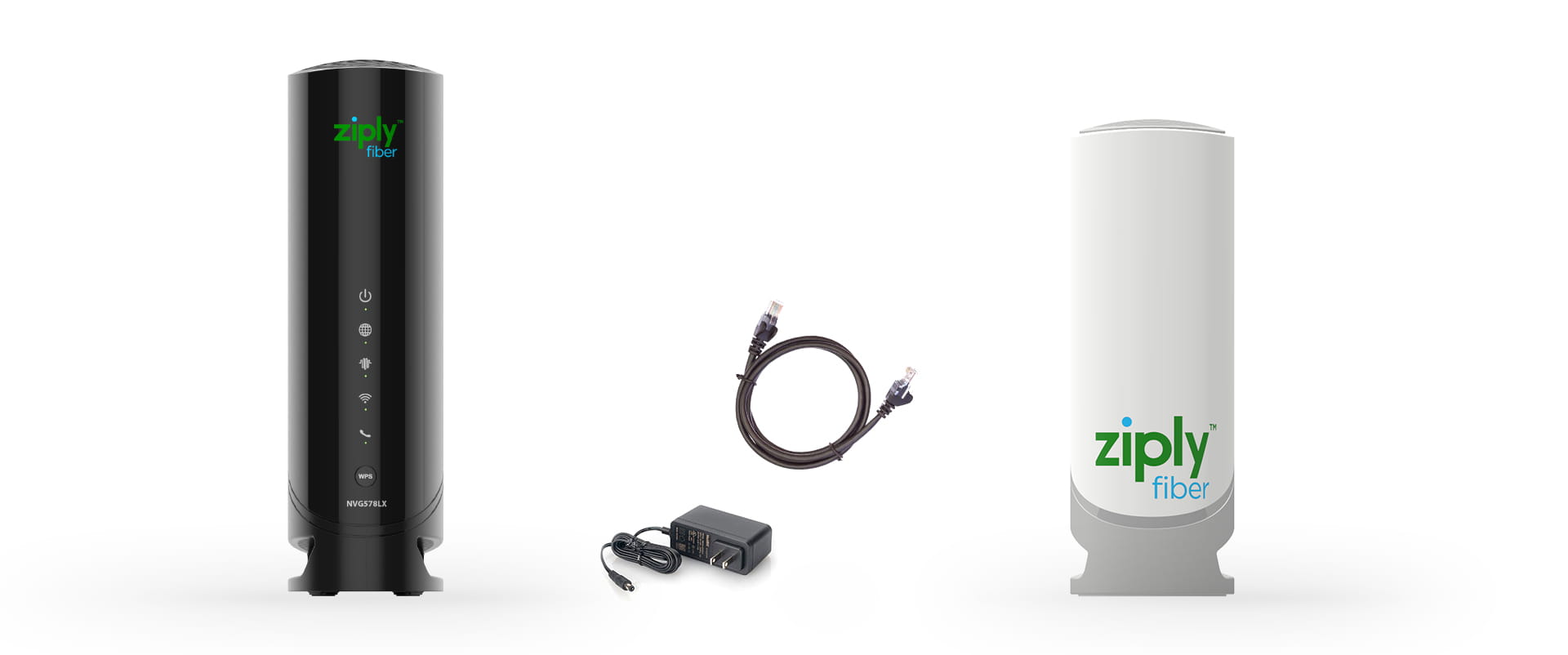A fast, reliable network connection is essential to gamers, who can’t get slowed down by lag, buffering wheels or glitches.
Fiber internet provides that critical lightning-fast connectivity. Here are some of the factors that affect game speed and performance for different types of games — and why fiber internet is a better choice over cable.
Table of Contents
Internet speed factors that affect gaming
What speeds do I need for online gaming?
Reasons your internet speed might be slow
Why fiber internet is the best choice for gaming
Should you get fiber internet for a better gaming experience?
Internet speed factors that affect gaming
Four main factors influence internet speed and gaming.
- Upload speed: This is the speed at which your gaming device sends data packets to the server to update gameplay.
- Download speed: This is how fast your device receives information from the game server.
- Ping: This refers to the time in milliseconds that it takes for a signal to go from your gaming device to the game server, and vice versa.
- Latency: This term refers to the “round-trip” time in milliseconds that it takes for the gaming device to ping the game server and the game server to ping back to resolve a specific action.
Upload and download speeds play a huge role in ping speed and latency. In online gaming, you want a ping rate to be as low as possible — a lower number in milliseconds is a faster ping. And you want to keep latency to an absolute minimum. Otherwise, you may experience a frustrating lag in gameplay.
What speeds do I need for online gaming?
The necessary upload and download speeds for gaming depend on several factors, one of which is the type of gaming console or platform you’re using. With fiber, unlike cable, you can get symmetrical upload and download speeds, which is ideal for gaming because you don’t have to worry about your upload speed lagging behind your download speed.
Bandwidth needed for consoles like Xbox, Nintendo Switch and PlayStation
Xbox One, PlayStation and Nintendo Switch all require a minimum download speed of 3 Mbps and a minimum upload speed of 0.5 Mbps. They also require a ping of less than 150 milliseconds
Keep in mind that these speed specifications are minimums. If you go lower than this, you’ll almost certainly experience lag. It’s important to note that internet speed is not static. While many cable connections will feel like they have pretty consistent upload and download speeds, the reality is that those speeds constantly fluctuate by small amounts.
So if you purchase internet with 5 Mbps download speeds and 2 Mbps upload speeds, don’t be surprised if you experience lag with your Xbox games. Those speeds are constantly fluctuating, and they might duck below the minimum threshold regularly. Similarly, an unstable connection could lead to huge performance fluctuations. You might be getting 15 Mbps download speeds on your cable internet connection at first, only to have your speeds drop below the minimum threshold later on because of network congestion. These basic speeds and principles also apply to cloud gaming and most streaming platforms. Again, with fiber, especially gig-speed fiber, you’ll likely get the same upload and download speeds, which will positively influence ping and latency, which will guarantee a faster and more seamless gaming experience.
Bandwidth needed for MMORPGs or Battle Royale games
If you’re playing MMORPGs (massively multiple online role-playing games) or Battle Royale games, you’ll need more than the minimum bandwidth specified by your gaming platform. That’s because these games include multiple players performing multiple actions with one another and with objects inside the game. The games are inherently complex and require more internet bandwidth to function properly.
In MMORPGs, you’ll need to interact with other players, not just on screen but often via voice as well. Battle Royale games are similar in that they’re multi-player and involve significant quantities of data that are transferred back and forth online. You're probably going to need a minimum download speed of 5 Mbps, an upload speed of at least 1 Mbps and a ping rate of 150 ms.
Cloud gaming
Cloud gaming is super convenient. You don’t need a console, and you might not even need to download the game at all. You just connect to the internet and play. Easy, right?
Well, it is easy. But only if you have a fast enough download speed.
Since you’re already connected to the internet, that means you’re using bandwidth for various things going on with your computer or mobile device. All of those activities eat up download speed, which is critical to an optimal cloud gaming experience.
Livestreaming video while you play
Livestreaming your gameplay always consumes additional bandwidth on your local network. You’ll need a fast enough upload speed to accommodate both the livestream and the game itself – and “fast enough,” in this case, will be far in excess of the 1 Mbps threshold for console-based games like Xbox.
Reasons your internet speed might be slow
If your internet connection is only as fast as those minimum speeds, you won’t be able to use that internet connection for anything else other than the game you’re playing at the moment.
Not only that, but you won’t be able to play certain bandwidth-heavy games at all. Let’s take a look at some of the other factors that come into play when considering the ideal upload and download speeds for online gaming.
Other people or devices are using your internet connection
How many people share your internet connection at home? Even if it’s just you, you probably have more than one internet-connected device that’s eating up bandwidth.
Your smartphone monitors everything, including emails, texts, weather alerts, breaking news, and more. Then there’s your TV, which might be connected to the internet. You might also have a smart thermostat or security system.
If you live with other people, their devices use bandwidth, too. In busy households, you might have over a dozen devices performing all of the tasks described above at the same time. In addition, other people might be streaming videos or uploading large files while you’re trying to play a game.
The bottom line? You probably need more than the recommended minimum bandwidth for your gaming activities – much more.
Updates and clip uploads
Do you plan on uploading clips while you play your game? Do you want your games to update during gameplay? If so, you’ll need additional bandwidth beyond the game maker’s specified minimums.
Updates and clip uploads, like other extraneous internet activities, involve substantial data transfer. You will need faster download and upload speeds to accommodate them while playing your games.
Network congestion
If you have a typical cable internet connection, you may have noticed that it slows down in the evenings. Local cable infrastructure can only support so much activity. In most residential communities, peak internet usage time is at the end of the day when everyone is at home and using the TV and internet. In many areas, all of this simultaneous activity reduces the amount of bandwidth for everyone. As a result, you might see pixelated faces on the screen during your movie.
The more congestion that’s on your network, the more latency you’ll experience around gameplay. If you’re using cable internet and your speeds sit right around the platform minimums for gaming, there’s a good chance you’ll experience lag.
This problem is virtually nonexistent with fiber internet. Since fiber utilizes a fiber-to-the-home connection, your home gets its very own fiber line. This setup eliminates many of the factors that contribute to network congestion on cable connections, providing you with a more consistent internet experience.
Why fiber internet is the best choice for gaming
For the best possible online gaming experience, fiber internet is critical. Compared to cable and DSL connections, fiber internet offers significantly faster upload and download speeds. Fiber is also more consistent and stable than those types of connections, helping ensure consistency in your gaming. And while your cable speed might be sufficient to handle the minimum requirements of your favorite games, it may not be enough to handle all the other factors influencing your speed, including competing devices on your network and peak-time traffic. With fiber, you’ll get the speed and reliability that’s essential to gaming without having to worry about external factors that slow things down.
Fiber internet download and upload speeds
Fiber download speeds range from 50 Mbps to 5 Gbps. Compare that to the miniscule 3 Mbps needed for a console game and we’re talking fast.
While you may be able to get by on cable for some gaming, fiber’s faster speeds mean that you’ll never be stuck with lag and your connection will be more stable with less congestion—especially if there are other people or devices using the WiFi at the same time.
Gig-speed plans allow for around 1 Gbps, which is more than sufficient for most household online activities, including gaming. And since fiber offers symmetrical upload and download speeds, your ping and latency will be low.
One of the best things about fiber internet—and this is almost never the case with cable internet connections—is that download and upload speeds are reciprocal. In other words, you can enjoy a download and upload speed of around 1 gig. This gives you more than enough bandwidth for gaming, and your fiber connection will also support all other simultaneous activities, such as livestreaming gameplay, uploading clips, and whatever the other members of your household might be doing at the same time. Cable and DSL connections almost always offer much lower upload speeds than download speeds, even with plans in the same price range as fiber internet plans.
Fiber Internet Latency & Ping
With gig-speed fiber internet and symmetrical upload and downloads speeds, you’ll also keep your ping and latency to a minimum. When it comes to your ping rate, avid gamers should insist on 50ms or lower. That’s lower than the specified maximums for many gaming platforms, but those maximums are actually the cutoff for when you really can’t play the game properly at all.
Even if your ping is, say, between 50 and 75ms, you may start to notice the latency in gameplay. The game will feel sluggish and unnatural and you may get the sense that things should be happening faster. A rate of 20ms, on the other hand, is a surefire way to enjoy zero perceived latency. Fiber internet is better equipped to get you there.
Thanks to fiber’s newer infrastructure and lower susceptibility to network congestion, it offers much lower ping rates on the whole than cable internet connections. If you’re looking for a way to get closer to the coveted sub-20ms ping rate, fiber is your answer.
Should you get fiber internet for a better gaming experience?
Short answer: yes. If you want fast, consistent, reliable internet speeds for gaming and the best possible gaming experience, fiber internet is the way to go. With the industry’s highest upload and download speeds, the lowest ping rate, and the lowest latency, gaming with fiber internet is a consistently outstanding experience.
Not only are your speeds fast enough to support both the game and simultaneous activities, such as livestreaming and voice chat, but you also enjoy better consistency of speeds. And since fiber isn’t susceptible to network congestion, you don’t have to worry about lower quality gameplay during peak usage times.
Whatever your gaming preferences, Ziply Fiber has a high-speed internet plan that fits your needs. Get in touch today to see if Ziply Fiber is available in your area.






